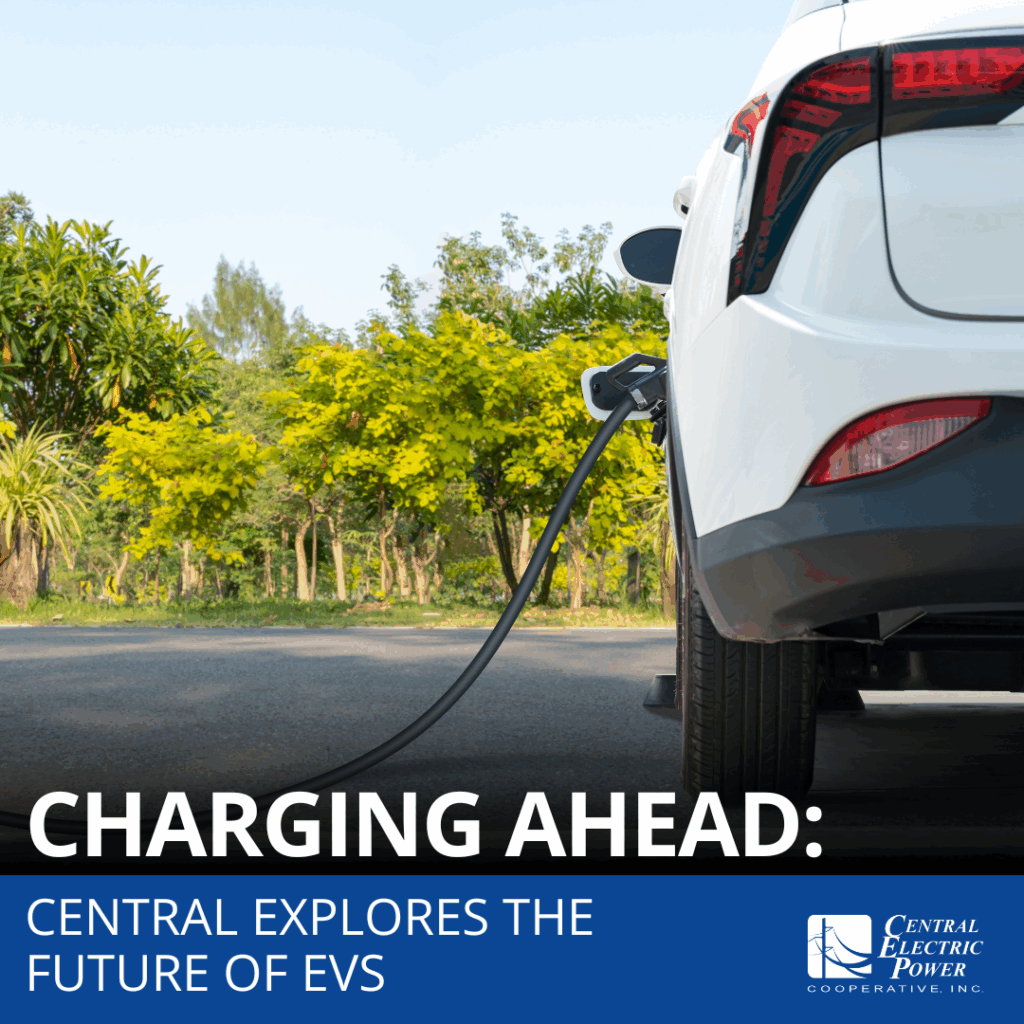Charging ahead: Central explores the future of EVs
At Central Electric Power Cooperative, we’re committed to powering South Carolina’s future with innovative, sustainable solutions, and that includes exploring the role electric vehicles can play in our operations and in the lives of our members.
As part of that effort, we’ve added a fully electric 2025 Volvo EX90 to our fleet. It’s the only EV in use by our team right now, but it’s not our first. Over the years, we’ve tested earlier-generation models such as the Nissan Leaf and Chevy Volt to better understand how EVs fit into the work we do. While not every vehicle met our operational needs, each trial has given us valuable insight into the range, performance and charging logistics.
This new addition isn’t just about adding a car. It’s about continuing to learn, lead and share what we know about electrification with our members.
Built in South Carolina, powered by cooperatives
What makes the EX90 especially meaningful is that it’s built right here in South Carolina. Volvo manufactures this SUV in Ridgeville at a facility powered by Edisto Electric Cooperative, one of our member cooperatives. That means our EX90 was built using electricity that Central secured and Edisto Electric delivered.
By investing in an EV made with cooperative-supplied electricity, we’re supporting South Carolina jobs and reducing our carbon footprint.
EV charging basics: what to know
Understanding the different types of EV chargers is key to making informed choices whether you’re charging at home or on the road:
- Level 1 chargers (120V): Plug into a standard outlet and provide 2-5 miles of range per hour. Suitable for overnight use, but slow for full charges.
- Level 2 chargers (240V): Common in homes and public spaces, these deliver 10-30 miles of range per hour and can fully charge an EV in 8-12 hours.
- DC fast chargers (480V): The fastest option, typically found at public stations. They can recharge a battery up to 80 percent in about 30-45 minutes, depending on the vehicle.
Charging costs vary based on electricity rates, battery size and charger type. For example, fully charging the Volvo EX90 (with an estimated 111 kWh battery) at home might cost between $12 and $18, depending on local rates. At a commercial DC fast charger, it could cost more – typically $20-$30 for a full charge, with the tradeoff being a faster charge.
You can learn more about EV basics, charging types and cooperative incentives on EnergySmartSC.org.
Driving forward, one mile at a time
Beyond investing in the EX90, Central will continue to explore technologies that keep us on the cutting edge of our industry. Only by continuing to learn and innovate can we continue to deliver power as reliably, affordably and sustainably as possible.

